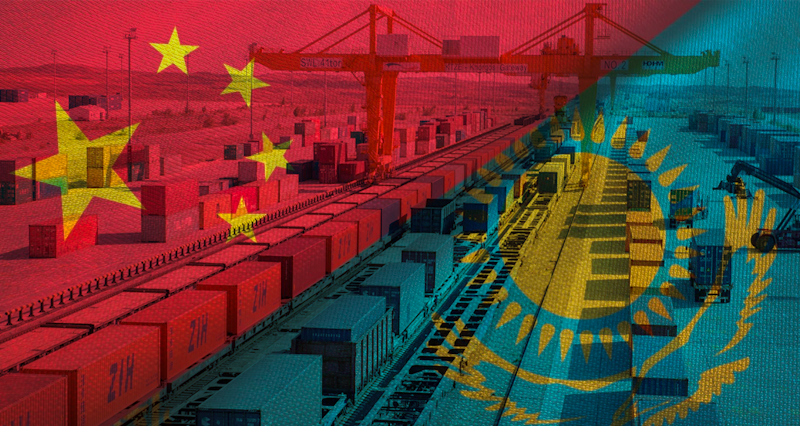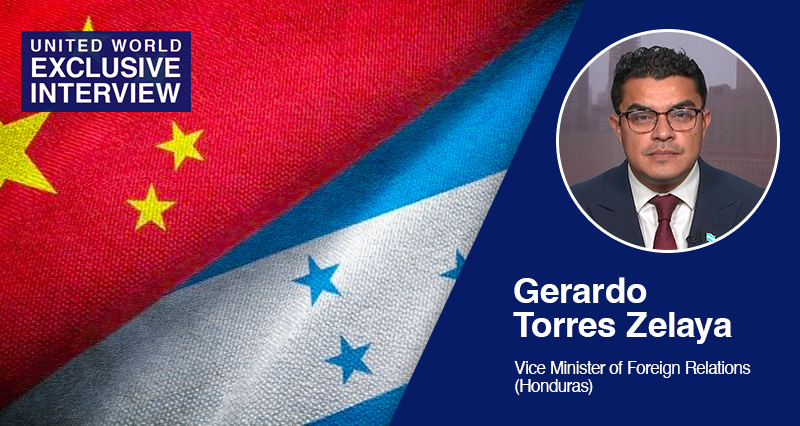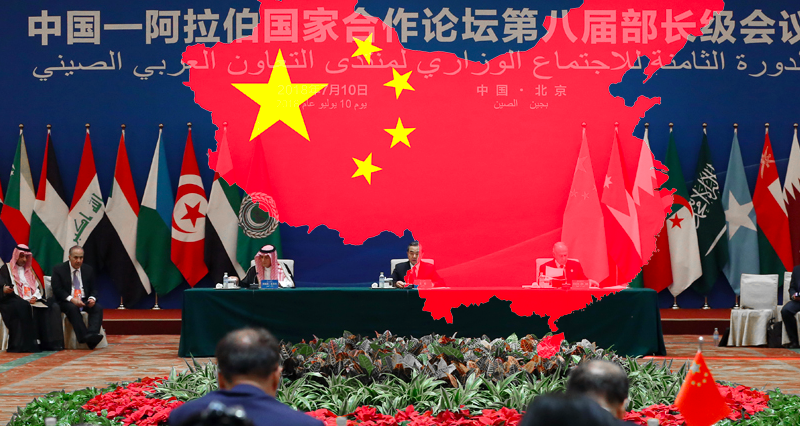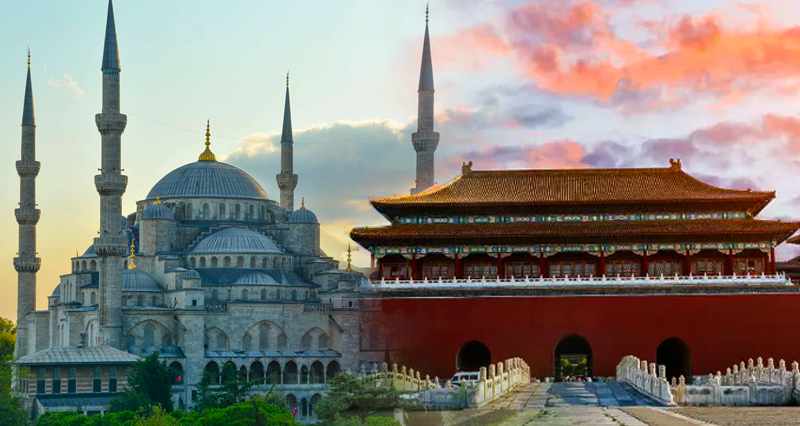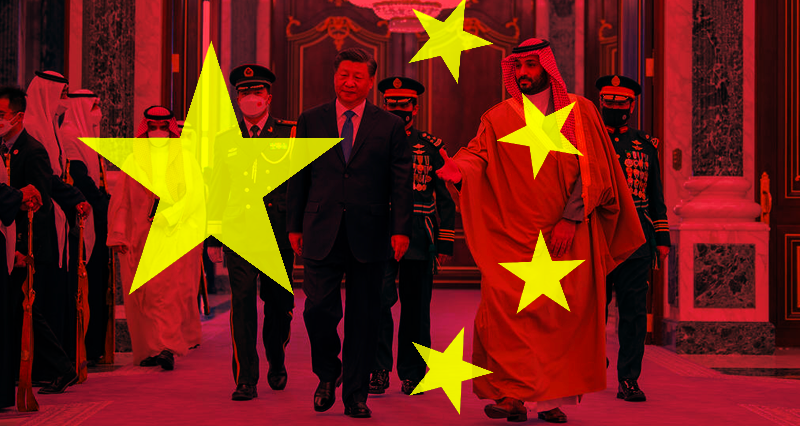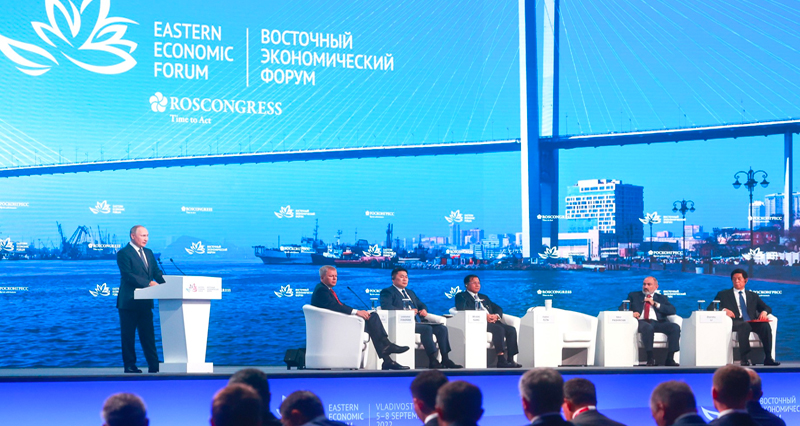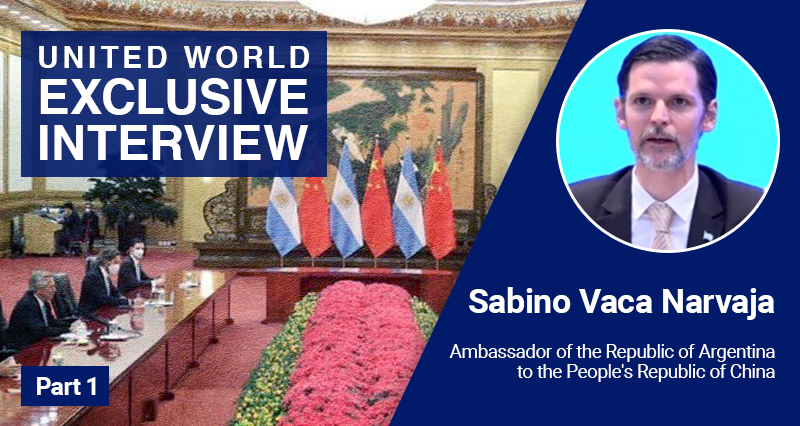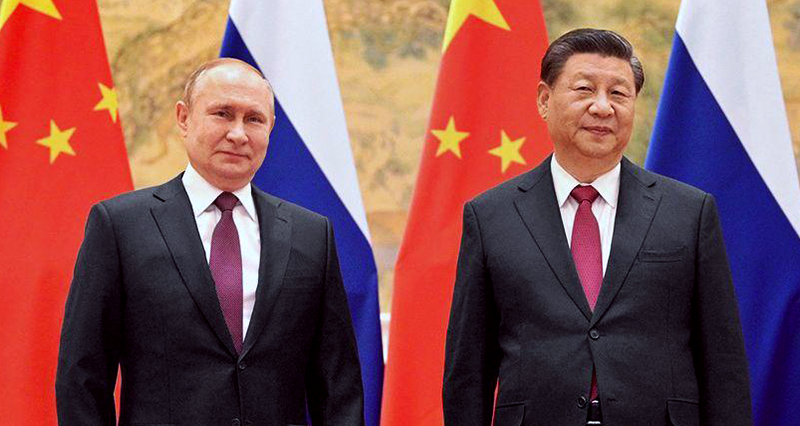Can there be a port at the farthest distance from the sea? I went to the Horgos Free Trade Economic Zone, known as the world’s largest ‘dry port’, which is crossed by both road and rail and will soon have air service. I have seen it, I am writing about it! At the pole of inaccessibility in Eurasia The Horgos ...
On March 26, 2023, Honduras stopped its diplomatic relations with Taiwan and established these formally with the Republic of China. On this decision, I spoke with the Vice Foreign Minister of the Republic of Honduras, Gerardo Torres Zelaya. What is the broader context of your government’s decision to establish diplomatic relations with the P.R. of China? Honduras, traditionally and especially ...
Below we present the third and final part of our interview with Helga Zepp-LaRouche, the founder and President of the Schiller Institute. What is your opinion about Ukraine? We know that you have criticized the US’s position on the war in Ukraine. What is your main objection on that? The poor Ukrainian people are being instrumentalized for dual strategic reasons. ...
By Orçun Göktürk * In August 2021, in the days when the American troops withdrew from Afghanistan desperately and the 20-year occupation ended with the victory of the Afghan people, Saudi Arabia, one of the world’s largest arms importing countries, was signing a military cooperation agreement with the Russian Federation in Moscow. The moment when Saudi Arabia’s Deputy Defense Minister ...
The political axes of the world are changing as a result of the economic rise of the Eastern nations. The world is Easternizing. The western-centered order is declining. And while the shifts in axes are causing new controversies in the global sense, they also result in tectonic bursts. The fault lines are now active… “Seek knowledge even if you have ...
The significance of Chinese President Xi Jinping’s visit to Saudi Arabia cannot be understood in isolation from the symbolic messages it entails. The Chinese President was received with a standing ovation and awarded an honorary doctorate from King Saud University, in contrast to the apathy that US President Joe Biden experienced during his visit to the Kingdom last July. From ...
German Chancellor Olaf Scholz visited China on November 4 and met with President Xi Jinping and Prime Minister Li Kuchiang. “Reducing one-sided dependencies”, “regulating economic relations on the basis of reciprocity”, “free and fair trade” were among the topics that came to the fore during Scholz’s visit accompanied by a delegation of Germany’s leading companies. His government partners in the ...
By Işıkgün Akfırat, Vladivostok, Russia The Eastern Economic Forum in Vladivostok, Russia’s easternmost city, witnessed China-Russia-India unity. Speaking at the Presidential Session, Li Zhanshu, second leader of the People’s Republic of China’s after the President Xi Jinping, said that Asian countries would lead humanity out of the current challenges. The 7th Eastern Economic Forum (EEF), which took place in Russia’s ...
Asked about the recent Chinese-Russian joint statment, “The path ahead must be that of multipolarity, since no country in the world is born to be a satellite of another”, says Sabino Vaca Narcava, Ambassador of the Argentine Republic to the People’s Republic of China in his interview with United World International. In today’s second and last part of the interview, ...
Argentina’s Ambassador to China provides details on his country’s participation in the Belt and Road
Argentina joined the Chinese Belt and Road Initiative in February 2022. Argentinian President Alberto Fernández visited the People’s Republic of China in February 2022 and signed an according agreement. The country’s Ambassador to China evaulated on Argentina’s participation in the initiative. Argentina has become thus the biggest Latin American economy till today to join the initiative. But what does the ...
Argentinian President Alberto Fernandez has concluded his visit to Russia and China. United World International expert Yunus Soner spoke on the visit and its repercussions in Latin America and the reactions from Washington to China Radio International Turkey. Soner said that Fernandez’ visit caused “a series of small political earthquakes”. Below we present the interview as published by CRI Türk. ...
The Presidents of the Russian Federation, Vladimir Putin and the People’s Republic of China, Xi Jinping made a joint statement following their meeing in Beijing on February 4, 2022. The Russian-Chinese joint statement covers a wide area from security to development, from global governance to internet regulation. Below, we present the text as published by the Russian Presidency. Chapter numbers ...







